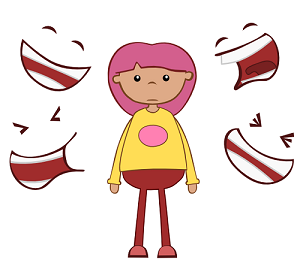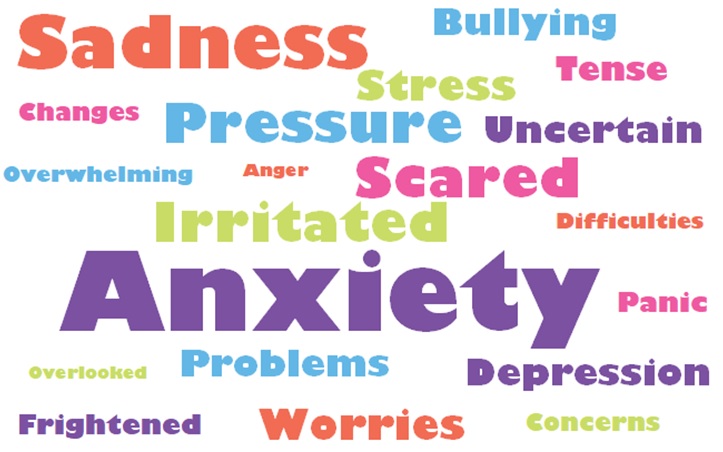Children’s Mental Health
Oxford University Press conducted research among over 8,000 UK school children aged 7-14 and found their top keyword when speaking about Lockdown was ‘anxiety’. This was picked over words such as ‘bubble’, ‘kindness’ and ‘challenging’.
Though heart breaking, this statistic is not surprising given the challenges young people have faced during such vital stages of their development and education.
NHS studies have shown that in 2021 ‘39.2% of 6 to 16 year olds had experienced deterioration in mental health since 2017’[1]. Factors such as home life, social media/online gaming and academic pressures following school closures contribute to a wall of barriers for our young people to get through.

What can we do?
- Consult the professionals. We really know our stuff when it comes to Theatre in Education but even we consult professional advice and resources when addressing Mental Health for children in our workshops (see number 3). Barnardo’s[2], The Children’s Society[3] and Children’s Mental Health Week[4] all have incredible advice and resources for parents and educators alike!
- Keep up-to-date with the latest trends. No, we don’t mean what trainers are ‘in’ and which Kardashian is dating which rapper – we mean keep in touch with what young people are accessing and watching. The best way to know if something is a concern is to know more about it! Even if something is seemingly appropriate for young people; abuse and exposure to inappropriate content can still get through. For example, the mobile game ‘Among Us’ is still incredibly popular with children across the world. However in its early stages, no age-verification was necessary and all players could communicate via live chat within the game; exposing young users to harmful language, bullying and scams. Another case was the recent Netflix sensation ‘Squid Game’. Trending online with great reviews, it’s natural that young people wanted to see what the fuss was about despite the programs adult themes and content. The latest concerns seem to be coming from ‘Replika’, an AI chat bot. National Online Safety[5]create incredible resources including their ‘What Parents Need to Know About…’ sheets, with easy to understand information about apps, games and other content which could be harmful to young people.

- Look at ways to equip young people with the tools they need to deal with anxiety and other negative feelings; and help them understand their own mental health. This is something we can help with! We have Play in a Day and Creative Learning Workshops available on Mental Health and Mindfulness, to help children understand why they feel these huge, sometimes scary emotions; and what to do when it all becomes a bit too much. Take a look at what we have here:
Magical Mindfulness – KS1 Creative Learning Workshop
https://www.konfluxtheatre.co.uk/project/magical-mindfulness
Here and Now – KS2 Creative Learning Workshop
https://www.konfluxtheatre.co.uk/project/here-and-now-mindfulness
Peace of Mind – KS2 Play in a Day
https://www.konfluxtheatre.co.uk/project/peace-mind-mental-health
Take a Deep Breath – KS2 Play in a Day
https://www.konfluxtheatre.co.uk/project/take-deep-breath
Head on over to our twitter @KonfluxTheatre where we share helpful and interesting resources and ideas from other education professionals as well as information about our own workshops!
Konflux Theatre in Education
[1] Mental Health of Children and Young People in England 2021, NHS Online, 2021 https://files.digital.nhs.uk/97/B09EF8/mhcyp_2021_rep.pdf
[2] https://www.barnardos.org.uk/
[3] https://www.childrenssociety.org.uk/
[4] https://www.childrensmentalhealthweek.org.uk/
[5] https://nationalonlinesafety.com/


